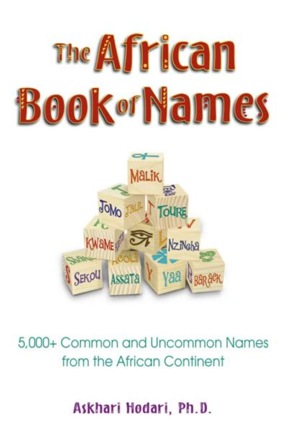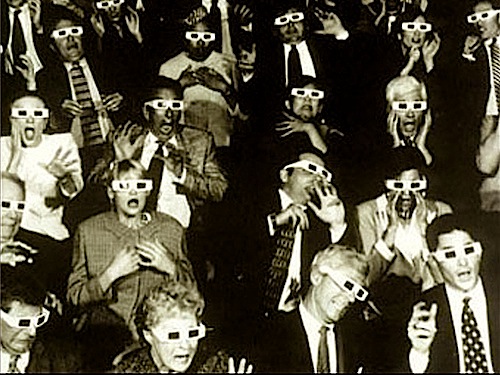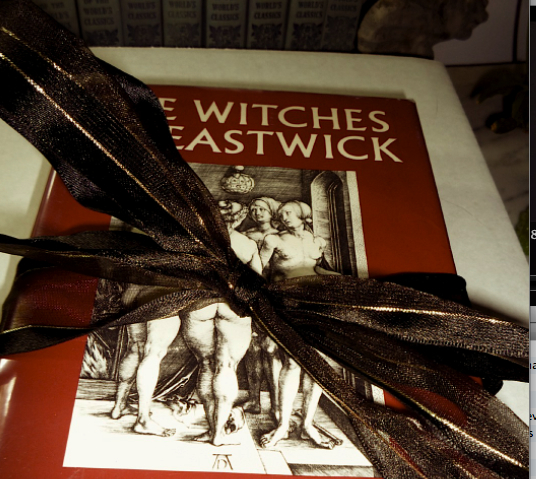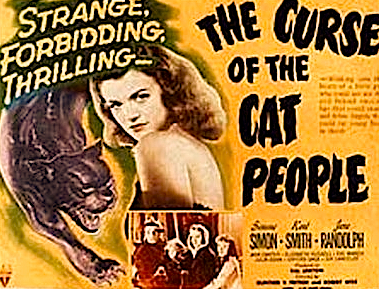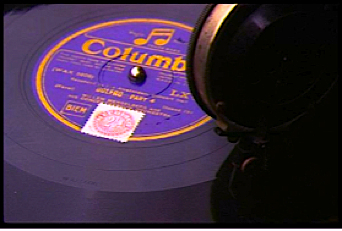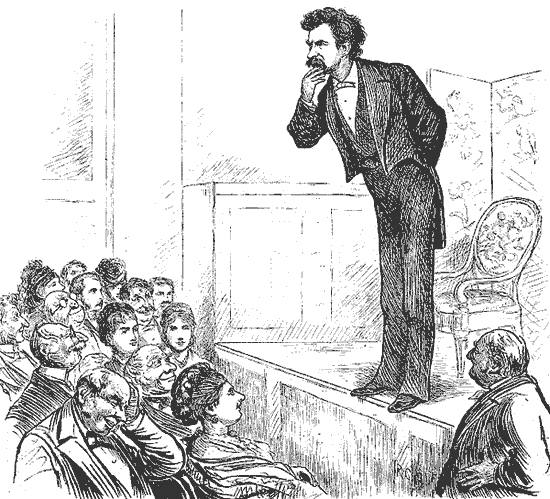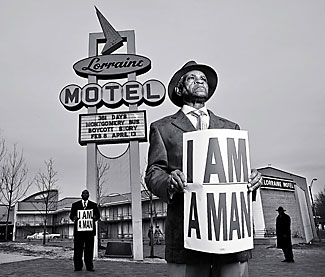

Before I launch back into our ongoing series on how to track down good feedback on your manuscripts: here’s an announcement for Pacific Northwest-based writers, particularly those who happen to reside in Portland or Seattle: this week, the HX Gay and Lesbian Travel Expo will be happening here, Tuesday the 24th for Portland, Thursday the 26th for Seattle. In general, I’m not much of an expo person, but always encourage my writing friends to check out these fun events for one simple reason — and it doesn’t have to do with the mountains of free pens, notepads, rubber duckies, and other dosh that the travel-mongers hand out on these occasions.
It’s because they’re an absolutely marvelous place to find really, really good deals on writing retreat space. Hear me out on this one.
Writing retreat space tends to be both hard to find and expensive. As we’ve discussed in the past, there are quite a few organized retreats for writers (although not nearly so many as for other kinds of artist, I notice; Poets & Writers maintains an excellent database of deadlines for application), places that will shelter and feed a humble scribbler for anywhere from a week to a year. While many of these retreats are indeed marvelously supportive places to work in peace, one generally has to write one’s way in, often via an extensive and time-consuming application; as spots are competitively awarded, it can be extremely difficult for as-yet-unpublished writers to land spots.
Even if they do, they often end up paying the retreat for the privilege, in addition to the expense of getting oneself and one’s computer to and fro. And that’s not even counting the often quite hefty application fee, or the long wait (often months) to find out if one got in, or the fact that most retreats require a writer to commit to longer stays than someone living on a budget (and who isn’t, these days?) might be able to take off from work, family, and/or other obligations.
The moral: read those application forms carefully before you sign the check for the fee.
For those with less time or resources to invest, but who would give their eyeteeth for a three-day unbroken stretch of writing away from the aforementioned distractions, a solo writing retreat can be a far less costly option. But it takes some research to find good deals, especially to track down hotels where, say, a woman traveling alone — or anyone else who might not find a well-deserved welcome mat out everywhere — might feel safe.
Beginning to catch my drift here?
If the ’09 edition of the HX expo is anything like previous years, it will be stuffed to the gills with representatives of hotels — and resorts, airlines, etc. — who have given a lot of thought to the needs of the traveler who needs to feel safe. I’ve had many productive discussions with hotel managers, assistant managers, and other eager spokespeople about precisely what I want and need in order to be able to lock myself in a room for a week in order to write. In fact, I found the sites of my last two solo retreats at these expos, thanks to information that let me figure out who had the amenities I wanted in a hideaway spot at a reasonable price. On a beach, no less.
How reasonable, you ask? Well, it varied, but both sites gave me a night for free and meal vouchers.
Oh, hadn’t I mentioned the discounts? I have walked out of these expos with literally bags full of coupons for everything from 20% off at a restaurant to 10% a round-trip airline ticket to, yes, the third night free if I stayed more than two. On a week-long retreat, those little things can add up.
So even if you Seattleites and Portlanders think you can’t afford to get away anytime soon, you might want to check out the expo, just to have those coupons handy. For locations and to download a free pass to the expo (hey, I have connections), follow this link.
Okay, time to snap out of that fantasy you’re having about locking yourself in a posh hotel room with your laptop and tossing the key off the balcony. Last time, I stirred up some lovely discussion by taking an in-depth gander at one of the most perplexing of social situations in which a writer may find herself, the friend who asks to read a manuscript — then keeps it forever and a day.
For those of you joining this series late, I have dubbed the remiss friend who turns your manuscript into a doorstop Gladys, but feel free to give her any face you like. (I tremble to think how my readers picture Millicent the agency screener by this point: the Wicked Witch of the West probably does not even come close. Go ahead and embellish; it’s a healthy way to work out pent-up hostility.)
Admittedly, I may be harping on this theme a little, but I have my reasons: although one occasionally encounters advice in writing manuals about whom to avoid as a feedback giver (it varies, but the universal no-nos: spouses, significant others, POSSLQs, and anyone else who has ever spent any time in the writer’s bedroom other than to make the bed), I’ve never seen this problem discussed elsewhere, at least in terms of strategy, or heard a brilliant solution posited by a writing guru at a conference.
And this is a shame, I think, because it’s a genuinely difficult situation for the writer, the kind of experience that can make good writers swear off seeking reader feedback forever.
But a writer needs feedback, and not all of us have the luxury of a well-read, genre-appropriate, tact-spewing writers’ group meeting within a couple of miles of our domiciles, or the time to join it if one does exist. So I like to think of this series as a survival manual for trekking through the feedback wilderness.
Advance planning can go a long way toward avoiding a negative Gladys outcome. Observing some of the earlier tips in this series — especially making sure up front that the reader has time available soon to read your work, ascertaining that your first readers fully understand what you expect them to do, and that it involves significantly more effort than merely reading a book — may cost you a few potential readers, but being scrupulous on these points will both reduce the probability of your being left without usable feedback.
Being clear about your expectations will also help you hold the moral high ground if your Gladys starts to dither as the weeks pass. And frankly, you’re going to want to cling to the high ground, because some Gladioli have been known, as I mentioned last time, to get a mite defensive when confronted with the fact that they evidently read at the speed of a third grader.
And no, I’m not talking about the precocious third grader who stayed up all night when the latest Harry Potter book came out.
To refine the taunt for those more in the know, the Gladioli of this world read with the speed of a busy editor at a major publishing house, who frequently take months to get around to a manuscript, simply because they have so many of them on their desks. Or propping up their coffee tables, gracing their couches, providing a papery pedestal that Tom Wolfe book they’ve been meaning to read forever…well, you get the point.
In fact, I suppose that an unusually broad-minded writer could construe the Gladioli of this world as prepping writers for the moment when their agents will say, “I know it’s been five months, but they haven’t gotten to it,” but unless Gladys IS an editor at a major publishing house, an agent, or another stripe of professional editor, she probably isn’t overwhelmed with manuscripts clamoring for her attention.
Enough obsessing about the problem: let’s talk solution. How does one set ground rules for first readers without sounding like a taskmaster to someone who is about to do you a great big favor?
First off, remember that giving feedback on a manuscript is indeed a favor, no matter how well-written it is. Unless Gladys happens to work in an agency or publishing house, is a member of your writing group, or you’re paying her to read your work, Gladys is under no obligation to help you and your book. Treating it like a favor from the get-go can go a long way toward minimizing problems down the line.
So why not take Gladys out to coffee or lunch to discuss it?
I would strongly advise you to sit down with your potential first reader to discuss expectations on a DIFFERENT occasion than the one upon which you intend to hand her your manuscript, to give her the opportunity to back out gracefully if she discovers that she’s bitten off, as they say, more than she can chew. Trust me, if the task IS bigger than she can comfortably take on within the next month or so, you will be MUCH happier if you learn this in advance, even if it means having to track down another first reader.
Schedule your coffee date as soon as possible after Gladys has agreed to read your work — but not so soon that you haven’t had a chance to come up with a short, preferably written, description of what you would like your first reader to do to your manuscript. Include in this list some indication of:
(a) How you would like to receive feedback.
Verbally? Writing in the margins? On a separate sheet of paper? A Post-It™ note on every page where the story flags?(b) What level of read you are seeking.
Should Gladys go over the manuscript with a fine-toothed comb (a real bore, for most readers, FYI), or just ignore spelling errors? Do you want her to keep an eye out for inconsistencies (rife in most manuscripts), or just to tell you if the story ever seems improbable? Would you be happiest if she made it clear how much she did (or didn’t) like the protagonist, or would it float your boat if she pointed out any reason that she wouldn’t tend to assign it to college sophomores?(c) Any specific questions about the text you might like her to answer.
Don’t assume that Gladys is automatically going to zero on the parts of the text that have been troubling you: speak up. If you’ve been staying up nights, worrying about whether that improbable love scene set on a bridge in a howling gale (“I love you.” “WHAT?”) actually works, this would be the place to bring it up. Ditto if you’ve been fretting about whether the story takes too long to get started, if your hook is genuinely a grabber, or can’t decide your extensive analysis of the hog market in 1832 is thrilling or soporific.
This level of specificity may seem a tad schoolmarmish — possibly because it is — but having the list on hand will make the subsequent discussion substantially easier on both you and Gladys, I promise. (As long-term readers of this blog MAY have noticed, I’m not a big fan of leaving expectations unspoken.)
The catch: once a writer has presented a first reader with this list, s/he has an ethical obligation to stand by it; no fair calling Gladys up in the middle of the night after you get the manuscript back, howling, “How could you not have caught that the pages were out of order, you ninny?”
While you are explaining what it is you would like your first reader to do, mention that in order for the feedback to be useful to you, you will need it within a month. Or six weeks. Or, at the outside, eight. But do set a date for the manuscript’s return.
How speedy a turn-around time is up to you, of course, but try not to make it less than three weeks — hey, a professional editor would charge you up to 25% more for a rush job — or much more than a couple of months. That’s long enough for a spare-time reader to get through pretty much any manuscript under 500 pages without pulling any all-nighters, so you need not feel as though you are proposing a pop quiz, but not so long that Gladys will simply set it aside and forget it.
The point here is to negotiate a mutually comfortable date that is NOT on top of one of your own deadlines for getting work out the door.
Yes, I’m aware that I made a similar point yesterday, but I cannot emphasize this one enough: do NOT hand your manuscript to Gladys within a few weeks of a submission deadline, even a self-imposed one. Even if she does everything perfectly, it’s not fair to ask her to share your time pressure — and if she doesn’t respond as you like, it’s just too easy to blame her disproportionately if — heaven forfend! — you miss your deadline.
Before you roll your eyes at that last part, hands up, everyone who has ever had to revise on a tight deadline. I appeal to those of you with your hands aloft: were YOU completely reasonable, or even marginally sane, two days before your deadline?
I rest my case.
If you are working on a tight deadline — say, having to revise an entire novel within the next three weeks, as I had to do a couple of years ago; that’s not an unheard-of turn-around time for an agented writer, by the way — it’s just not fair to expect a non-professional to speed-read your manuscript quickly enough for you to be able to incorporate the feedback. If you can cajole your writing friends into doing it within such a short timeframe, regard it as a great favor, of the let-me-send-you-flowers-and-clean-out-your-gutters variety.
But if you thrust Gladys, a non-writer, into that position, don’t be surprised if you never hear from her again. Or if you are still waiting to hear back months after that pesky deadline.
If you like ol’ Gladys well enough to respect her opinion, don’t put that kind of strain upon your friendship. Agree upon a reasonable deadline, one far enough from any imminent deadlines of your own that you will not freak out if she needs to go a week or two over.
Establishing a time limit will go over much better if you explain precisely why you need your manuscript back in a timely manner. If Gladys gives you feedback after the agreed-upon date (you will explain kindly in the course of this conversation), while you will naturally still value her opinion, you will not have time to incorporate it into the book before your next submission. Being able to turn the book around that quickly (you will tell her) is the difference between being the kind of helpful friend who gets thanked in acknowledgments and the kind of friend who is appreciated in private.
Very private. In fact, you may never mention it again.
After you state the deadline, ASK if it will be a problem for your first reader to meet it. Don’t assume that she will volunteer objections or tell you about that long weekend she has planned with that gaggle of friends who went to the travel expo with her: a Gladys who is too nice to say no to reading a friend’s book is frequently too sweet to mention that the next three weeks are the worst POSSIBLE time to expect her to comment intelligently upon anything at all, since her unreasonable boss is due for his annual inventory tantrum.
If Gladys hesitates at all, remind your first reader that it’s perfectly okay to say no. In fact, you would appreciate it, because you are at a point in your career where you need prompt feedback, and while she was your first choice (even if she wasn’t), you do have others lined up (even if you don’t).
Say this whether it is true or not; it will make it easier for her to decline if she feels overwhelmed. By allowing her the chance to bow out BEFORE you’ve gone to all the trouble of printing up a complete manuscript, you are underscoring that you realize that she is promising something significant, and you appreciate it.
Discuss, too, what your first reader should do if something comes up that will prevent her from turning it around as quickly as you and she would like. At minimum, ask her to call or to e-mail RIGHT AWAY, so you can find another first reader, rather than waiting until a few days before you expect to see it. Promise not to yell at her if she actually does need to make this call; tell her you’re already brainstorming about back-up readers.
As you should be, incidentally. The probability of getting genuinely useful feedback from non-professional readers goes up exponentially if the seeker tracks down more than one Gladys. Multiple first readers may lead to some conflicting recommendations, true, but many eyes are more likely to spot that embarrassing half-finished sentence in the middle of Chapter 8, the one that you never managed to get back to after your mother-in-law called during your writing time even though you’ve TOLD her a million times that creative time is sacred to you. It’s as though she sits there with a stopwatch, waiting until she’s positive that you’re going to be hard at work, then whammo! Ring goes the phone. Before she had any writers in her life, she probably specialized in predicting the moment when her nearest and dearest were just sinking into a nice, hot bubble bath — and calling then.
Oh, was I projecting again? Sorry about that.
While Gladys has your manuscript is a delightful time to re-read your own manuscript IN ITS ENTIRETY, IN HARD COPY, and OUT LOUD, if at all possible. You’re going to want to do this before you send it out to an agent, editor, or contest, anyway — you do want that, right? Right? Speak to me! — but even if that wasn’t on your to-do-before-submission list, it’s a good idea to refamiliarize yourself with your text before sitting down and discussing it in any depth with a first reader. Not only will you have a clearer notion of what aspects of the manuscript you would particularly like to talk over, but you will be a more receptive hearer of specific feedback on Chapter 2 than if you haven’t taken a gander at it for six months.
Not to mention the minor benefit that it’s the single best way for a self-editing writer to catch typos, logic problems, missing words, and other manuscript booby traps that are hard to spot on a screen.
Yes, I have urged all of you to do this before, but there’s a reason that I’m so adamant about it: despite my perennial admonitions, too few aspiring writers reread their own work — even if they’ve just spent the last two years revising it. That’s a serious mistake, since each pass at revising one chapter is likely to change some details in another. Throughout the course of many revisions, these inconsistencies tend to build up, resulting in what I have dubbed the Frankenstein Manuscript, a text cobbled together from many different revisions. If a writer doesn’t read the whole shebang again, s/he’s unlikely to notice these inconsistencies, but believe me, Millicent will, and she won’t like it.
Don’t make Millie angry. You wouldn’t like her when she’s angry.
Reviewing the manuscript isn’t the feedback-seeking writer’s only task during the anxious period when Gladys has the manuscript, however. As I suggested yesterday, a week before the agreed-upon deadline, call or e-mail Gladys, to ask how the reading is going. This will give Gladys yet another opportunity to back out, if she is feeling swamped.
No, this isn’t nagging. If she asked to read your manuscript out of simple curiosity — a very common motivation — she will have realized it by now. If this is the case, try not to make a scene; just set up a specific date and time to get the manuscript back.
And don’t forget to thank her for any feedback she has had time to give you.
If Gladys can’t make the deadline but still wants to go forward, set another deadline. It may seem draconian to insist upon specific dates, but inevitably, the writer is the person who loses if the feedback relationship is treated casually. If you are open at every step to Gladys’ backing out, you will significantly reduce the probability that she will let you down after two months.
Or four. Or a year. I’m fairly certain that at least one of the first readers of my first novel has had it since we were both in our mid-20s; perhaps she will get around to it just after we start collecting Social Security.
If you present these requests politely and in a spirit of gratitude, it will be hard for even the most unreasonable Gladys to take umbrage. If you respect her opinion enough to want her to read your book, you should respect her ability to make an informed opinion about whether she can commit to doing so. By taking the time to learn her literary tastes, ascertain that she has time to give you feedback, and not allowing your manuscript to become a source of guilt for months to come, you will be treating her with respect.
Your writing deserves to be taken seriously, my friends — by others and by yourself. The more seriously you take it, by seeking feedback in a professional manner, the better it will become.
In my next post, I shall discuss how to elicit specific information from your first readers, to gain insight upon problems you already know exist in the book. In the meantime, keep up the good work!
